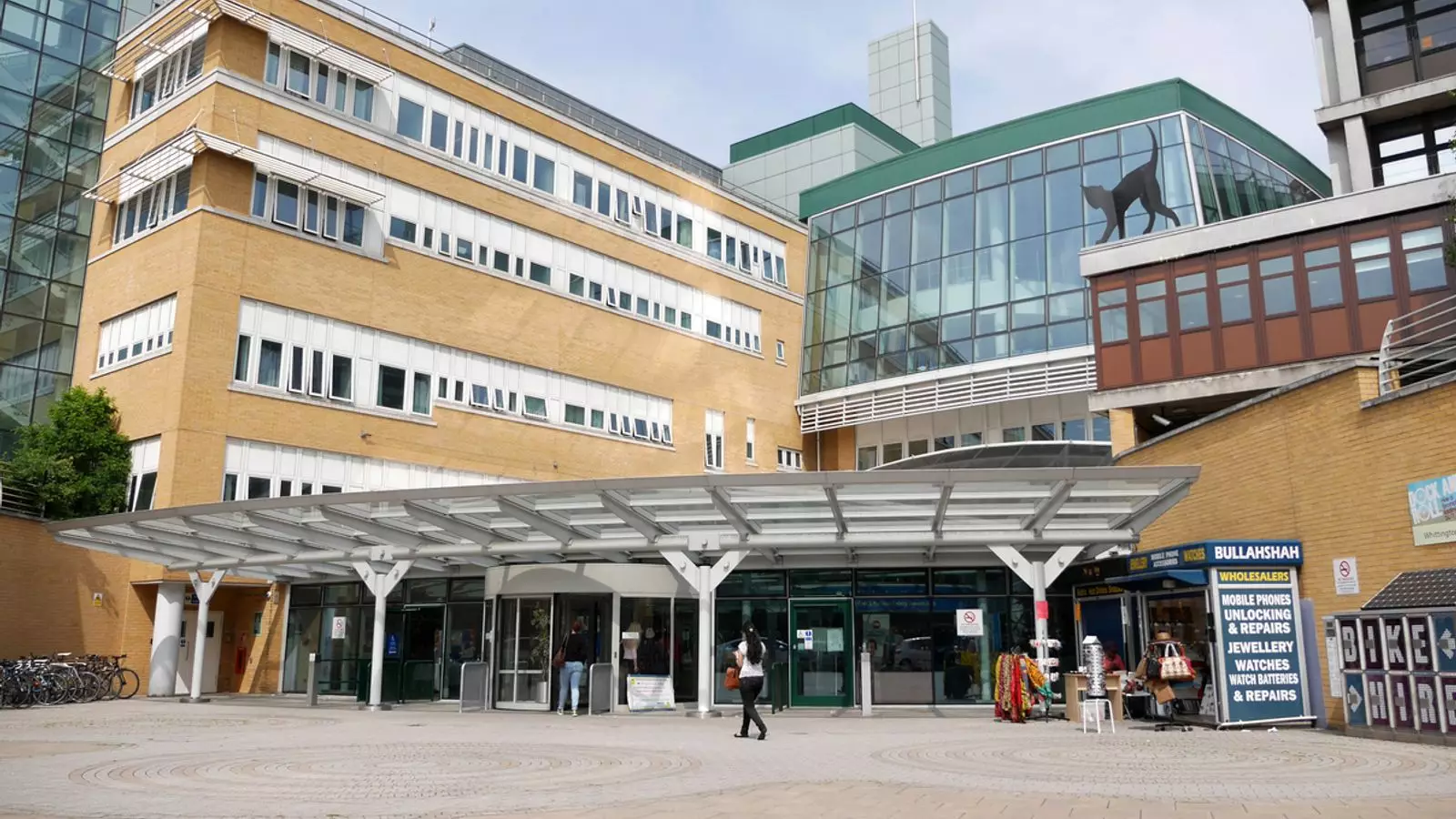In a telling reflection of the ongoing challenges facing the National Health Service (NHS), Whittington Hospital in north London has begun advertising for nurses specifically to provide care in hospital corridors. This move is emblematic of broader systemic issues within the NHS, particularly during a winter season characterized by unprecedented demand driven by a confluence of viral infections, commonly dubbed a “quad-demic.” As the healthcare system buckles under the weight of flu, COVID-19, norovirus, and respiratory syncytial virus (RSV), hospitals are left with no alternative but to prioritize patient care in the most unideal of settings: corridors.
The situation has escalated to the point where numerous hospitals across the country are declaring critical incidents due to overwhelming patient loads. The term “corridor care” has surfaced in public discourse, spurred by the alarming visibility of patients being treated in makeshift areas outside traditional care zones. Reports indicate that Whittington Health NHS Trust is feeling particularly strained, emphasizing that this approach is a last resort necessitated by the immense pressures faced.
In light of these circumstances, the Whittington Hospital has issued public statements aimed at reassuring patients and the wider community. They emphasize that bringing in temporary staff is part of their strategy to maintain the quality of care under difficult conditions. This response is indicative of a reactionary framework that often characterizes health service responses—focusing on alleviating immediate pressures rather than addressing the underlying causes of systemic imbalance.
Health Secretary Wes Streeting’s reflections on the situation were especially illuminating. He recounted visits to emergency departments where staff conveyed that he had arrived on what they referred to as a “good day.” The emotional and psychological toll on both patients and healthcare professionals is palpable. Elderly individuals, and those suffering from conditions such as dementia, often find themselves lying on trolleys in corridors, adding to a distressing environment not only for the patients but also for their families. The sentiment that corridor care should never become normalized reflects a deep-rooted understanding of the basic tenets of healthcare—the necessity for dignity and comfort.
Dr. Adrian Boyle, president of the Royal College of Emergency Medicine, condemned the practice of corridor care, characterizing it as “dehumanising” and “dangerous.” His remarks spotlight an unsettling reality: when patient care takes place outside of traditional settings like rooms or wards, levels of safety and humanity suffer significantly. The essence of patient-centered care, one that should prioritize comfort and dignity, becomes compromised, potentially leading to increased health risks and a decline in overall treatment quality.
The natural inclination among healthcare professionals to adapt in times of crisis is admirable, yet it raises critical questions about the underlying infrastructural and systemic challenges plaguing the NHS. The normalization of corridor care speaks to a troubling oversight in prioritizing human dignity within healthcare settings. As Ian Higginson of the Royal College of Emergency Medicine succinctly articulated, almost every hospital is now forced to admit the reality of treating patients in corridors and makeshift areas rather than designated care spaces.
As winter continues, it is increasingly clear that a profound re-evaluation of NHS policies and practices is necessary. The reliance on corridor nurses may provide short-term relief but does little to address the root causes of overcrowding and systemic strain. Policymakers must take actionable steps to invest in infrastructure, improve staffing levels, and secure sufficient resources to ensure that the core values of dignity and quality care remain conduits of patient treatment.
Moving forward, the focus must shift from crisis management to long-term solutions that prioritize patient welfare as a fundamental principle. Only through comprehensive reform will the NHS not only navigate current challenges but also fortify itself against future systemic pressures. As a society, we owe it to our healthcare workers and patients alike to demand standards that safeguard dignity and uphold basic human rights within all areas of our health services.

